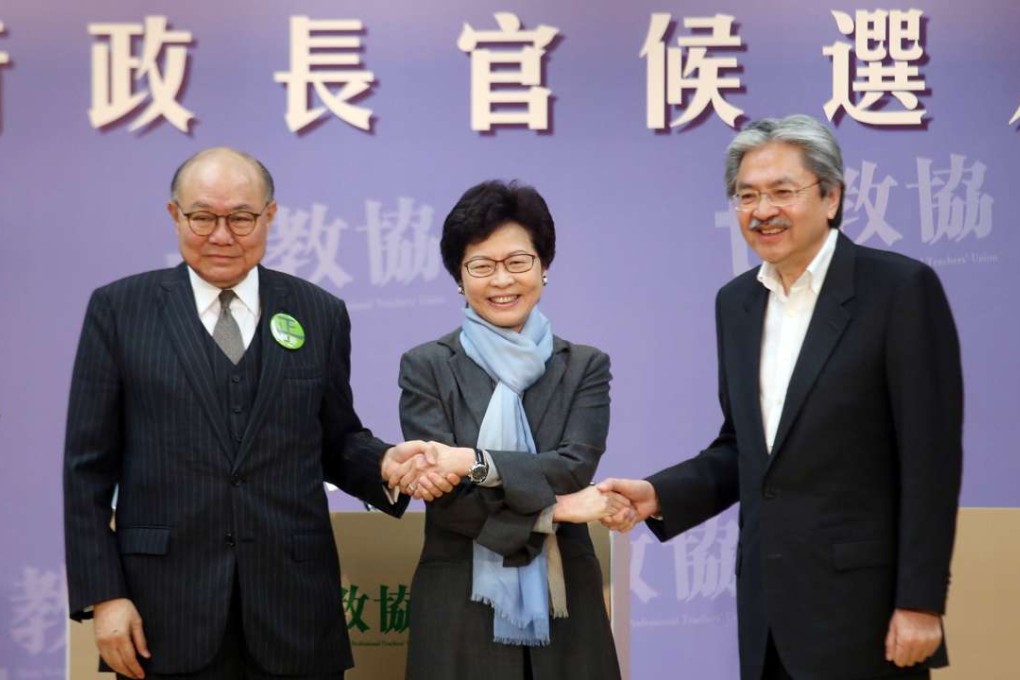Advertisement
Lam says she is a victim of ‘white terror’, as Hong Kong chief executive candidates face off
John Tsang shuts down rival’s claim, says recent incidents in the city were the ‘real white terror’
Reading Time:8 minutes
Why you can trust SCMP

Hong Kong’s three chief executive candidates, John Tsang Chun-wah, Carrie Lam Cheng Yuet-ngor and Woo Kwok-hing have for the first time appeared together to debate the key issues ahead of the election later this month.
Sunday’s event was organised by the Hong Kong Professional Teachers’ Union, which has 43 votes in the 1,194-member Election Committee that will pick the city’s leader on March 26.
All three candidates took turns to answer questions from the union voters as well as some 400 educators in the audience.
Advertisement
In his opening remarks, Tsang said over the past five years, Hong Kong’s education sector had been “too miserable to look back on”, with high-pressure exams imposed and more and more student suicides.
Woo said he did not understand why the two other candidates, as top officials, had turned a blind eye to the city’s lack of education resources until now. “Did they do their job?” he asked.
Advertisement
Lam said she was the product of Hong Kong’s excellent education system, and the only candidate who received local education throughout her schooling. She said she promised to invest HK$5 billion of additional recurrent fund into education.
The candidates will meet again on Tuesday at a forum organised by the city’s electronic media, where they will directly grill each other on their election platforms among other issues. A third debate, jointly held by the pan-democratic and the pro-establishment camps of the Election Committee, is set for March 19.
Advertisement
Select Voice
Choose your listening speed
Get through articles 2x faster
1.25x
250 WPM
Slow
Average
Fast
1.25x